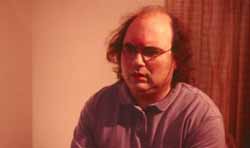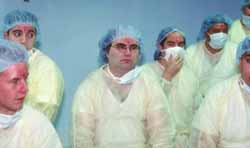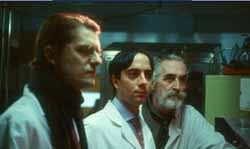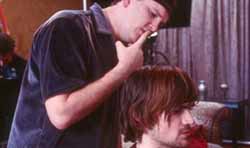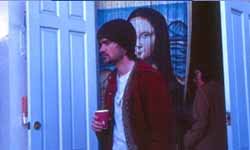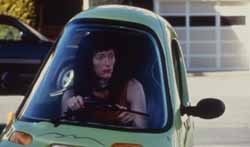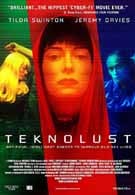Contemporary avant-garde cinema was born in the late 1950s and early 1960s when a group of filmmakers---Andy Warhol, John Cassavetes, and Stanley Kubrick---introduced experimental films that not only contained unconventional narratives, innovative camera work, and groundbreaking special effects, but also challenged mainstream culture's prevailing views on politics, sex, and aesthetic values. Today, the movement continues with Teknolust, a brilliant film about a bio-geneticist named Rosetta Stone (Tilda Swinton), who downloads her own DNA to produce three Self Replicating Automatons, also known as SRAs.
Shot entirely on a digital high definition camera by renowned cinematographer, Hiro Narita, Teknolust---directed by San Francisco writer-director, Lynn Hershman Leeson (Conceiving Ada)---successfully examines what would happen if androids actually lived and functioned like real human beings. Generating a high-tech, interactive ode to genetics, nanotechnology, and robotics that's as riveting and revolutionary as the color-coded robots it strives to create.
Bred to run an erotically charged Internet site called Ruby's E-Dream Portal, Ruby, Marine, and Olive (all played by the talented and versatile Tilda Swinton) live and work in Rosetta's microwave oven. The chatty cyber trio love to cuddle, but unlike their human counterparts, don't see physical intimacy as anything more than a way to refuel. Electronically programmed to seduce men with the help of a few cinematic pick up lines systematically linked from The Last Time I Saw Paris, Ruby---the group's red-hot sex kitten---leaves the nest only when it's time to circle for prey. Locating naïve, unassuming men and absconding with their semen from recycled condoms, so she and her equally obtuse sisters can inject themselves with a hearty dose of X chromosomes.
Of course, this may sound preposterous to you and I, but to Rosetta and the girls, this is all quite normal. At least until the chromosomal cuties learn that a dozen of Ruby's recent lovers have been mysteriously cursed with not only erectile dysfunction, but matching brow bearing bar codes that end up branding them with the virtual equivalent of a sexually transmitted disease.
Uncertain of how to handle her "babies" now that Agent Hopper (James Urbaniak) has gone off and hired a sexy private investigator named Dirty Dick (Karen Black) to solve this bizarre case of biologic warfare, Rosetta instructs the fembots to remain safely hidden in the microwave. Only before she discovers that her cantankerous clones have collectively asserted their autonomy, Ruby does the unthinkable and falls in love with Sandy (Jeremy Davies), the shy, sensitive copy guy from the neighborhood print shop, turning this self detached machine into one very human cyber-babe.
A standout at the 2002 Sundance Film Festival, Teknolust is the type of sci-fi fantasy that delves deeply into 21st century technology, yet does so without getting too bogged down in techno babble. The film, which is like stepping inside an interactive video game via a real life techhead, touches on the consequences of genetic advancement. Raising the pertinent question, "If Pandora's Box is ever opened, what steps will the scientific community take to ensure that human cloning won't conquer the universe?"
Aside from these timely philosophical musings, Teknolust is at its finest when satirically referencing the metaphysical differences between the scintillatingly self-confident sisters and their insecure mother. Swinton, who gives a tour de force performance as Rosetta, Ruby, Marine, and Olive, shimmers while twirling around the Technicolor dream pad like a kimono-clad whirling dervish. Teknolust circles cyberspace with genetically enhanced proof that sci-fi films don't have to be pretentious to be fantastically fun.
Your Daily Blend of Entertainment News
